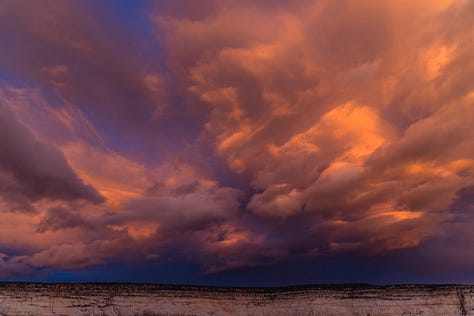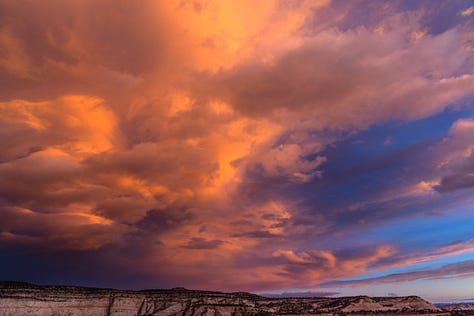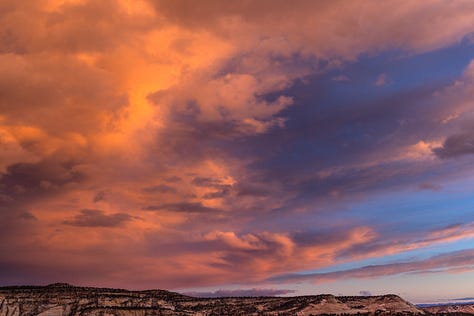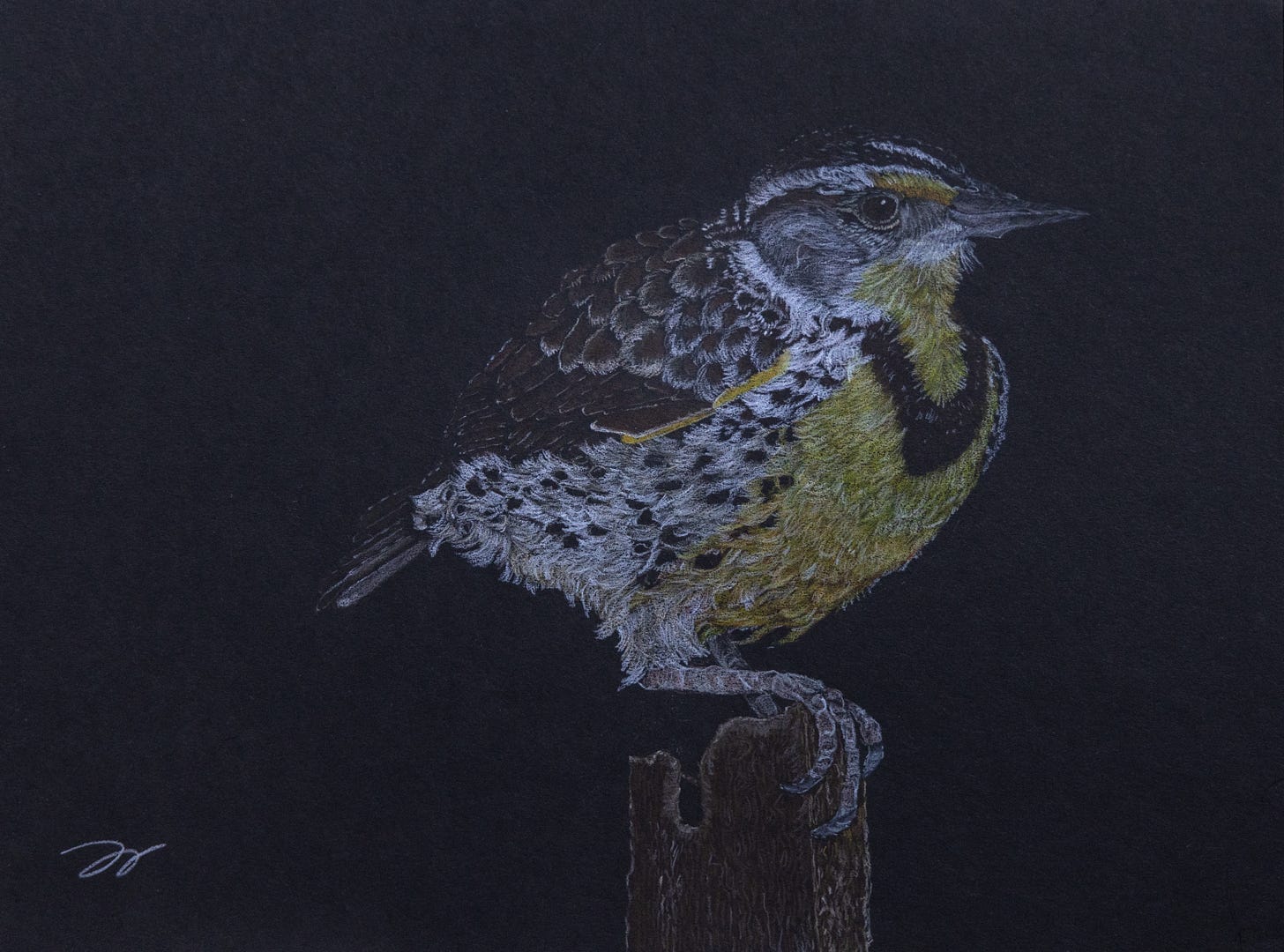A song I’ve been loving:
For the past few weeks I’ve been working on an owl awareness project with a neighbor in our small southern Utah town. The ‘awareness’ part is about recognizing these creatures as the highly skilled hunters they are1 and trying to prevent secondary poisoning – when owls and other hawks, eagles, or carnivores are accidentally killed by ingesting a rodent that has been poisoned. In this long-time ranching community, residents have been waging battles with the fluctuating gopher populations for decades, if not a century. Some years aren’t so bad, while others, it seems like entire acres are consumed by tunnels and dotted with fresh piles of gopher dirt.
Right now we’re in one of the population surges, and the topic of what to do about these ‘pests’ and the use of rodenticide has come to the surface once again. As a side note: one of our neighbors up-valley told me he planned to flood his fields at the end of the summer to get rid of the gophers on his land and I imagined a gopher tsunami coming our way. This is definitely preferable to poison, though also just moves the problem to someone else’s fields… Owls help us!
I’ve heard our local owls almost every night this winter, sometimes from three or four directions at once. It’s incredible. I can feel my whole body settle and calm as I listen to their cooing back and forth. The huge birds have landed on our roof a few times, hooting out into the dark, star-scattered sky from just 8 feet above my head. I’ve shared these experiences with friends and thus been asked if I wanted to help spread the word about how we can give them a better chance of survival. According to my friend’s research, Utah’s DNR has seen an increase in the number of owls killed by poison this year. We want to help prevent avoidable deaths and have open, respectful conversations with residents who currently believe rodenticide is their best option.
This whole experience got me thinking about the act of caring. In the chaotic, scary, dark times our society is currently living through, caring seems both essential and dangerous. There are so many things I care about that are under attack every day that I run the risk of burnout and apathy as my heart tries to protect itself. But I also think caring is one of our greatest powers and greatest gifts.
All of this had me flashing back to highschool when I tried so hard to dim that caring part of my heart and mind. Even though I grew up loving forests, mountains, deserts, oceans and all of their beings, and went on to become an environmental sustainability studies major, there have been so many times where I’ve distanced myself from my caring. During junior and senior year we were allowed to leave campus for lunch at my school. I remember multiple times when I was in the car with friends and one of them, laughing, threw entire bags of trash – the wrappings from whatever food we’d picked up – out the window, just because she knew it would get a rise out of me. I HATED littering and I got so upset every time she snuck something out the window. She would nearly cackle with glee at how much I cared, how much this hurt me. I quickly realized that it was safer in this instance not to speak up, and when I didn’t react, the littering became less fun and eventually stopped. This specific memory made me realize how caring, in my life at least, has so often felt discouraged and like the epitome of ‘uncool.’
Caring can be dangerous; it sets us up to be hurt, to be disappointed. But I care instinctively. I care deeply. But this part of myself, through schooling and socializing, was slowly siphoned away. It was much more preferable to be aloof, and in many circles, still is. It’s only in the last few years that I’ve come to more fully embrace how much I care and how much this sensitizes me. I still feel the difficulty of fully accepting it, in not shying away.



It can be overwhelming to feel so much, so often. I can easily enter a black hole of spinning thoughts just considering how many plastic bags and wrappers are going into the trash everyday, to sit in holes in the ground for the next several hundred years, slowly filling our beautiful world. I know these thoughts are important and can drive change, but they can also overwhelm and freeze me into catatonic fear and inaction. There are so many important issues facing our world that I cannot fix on my own. As I’ve been getting back in touch with my caring and working on doing something about the things I care for, I’m reminded over and over again to start small, to start close in, with what is near, with the places I call home.
I was recently inspired by another story of my community’s caring that I heard about in-depth for the first time last month. Starting in 2009, the community united to prevent the use of rotenone, a piscicide frequently used in managing fisheries, on the headwaters of the creek that runs through town.
That year, locals came across hundreds of dead fish in Boulder Creek and after reporting the issue, discovered that rotenone had been used without first notifying town residents. It was a fight that took a decade of back and forth with the Utah Division of Wildlife Resources (UDWR) and the United States Forest Service (USFS). In 2019, the project was deemed “not currently feasible due to local opposition,” as Tessa Barkan wrote for the local Insider Newspaper. It took the whole town coming together to stop this project; people who don’t often see eye-to-eye or hold the same values. But the importance of clean water and the understanding that poisoning water sources is never a good idea made collaboration possible.
This sentence from the article linked above gives me the good kind of goosebumps, the kind that makes my body and mind feel like they are swelling with possibility, maybe even with righteousness?
“This project is a monumental example of how the voices in a small community can, when in unison, change government policy. This could set a precedent for other communities fighting the ubiquitous policy of chemically sterilizing watersheds for the purpose of fish management.”
Through these different projects, I’ve realized that one of the big reasons I love living here is that it allows me to have a more intimate connection with the world around me. The water, the plants, the animals, the birds, everything is so close. Yesterday, a flock of more than 60 meadowlarks landed in our orchard, flitting around the dried rice grass and clover and mares tail stalks from last year, swooping in veils along the edge of the pond. They sing perhaps my favorite song of our local birds (listen below), and twittered and chirped as I sat on the deck in morning meditation.

I’d never seen more than two of these beautiful birds together at once. I learned that a flock of meadowlarks is called a pod and during winter months, up to several hundred birds might gather to forage for leftover seeds. We’ve had bald eagles, golden eagles, red tail and cooper’s hawks in the field this week. And as I sat listening to the birds sing, I realized how good this kind of noise is for my nervous system. If the birds are singing, it feels like all is right in this little corner of the world. I hope we can keep them singing.
A Great Horned Owl usually eats 3-4 rodents per night, and during nesting and fledgling season, that number can go up to 50!





Thank you for this piece, Mary, and for the encouragement I needed to speak up. You’re hitting on everything that feels so relevant to this moment. To be honest, I’ve been feeling overwhelmed, angry, and deep in grief— which has made me withdraw. This was the push I needed. Grateful for your words.
So moving and beautiful, Mary. I love all that you expressed. In a culture that often seems so uncaring, it’s easy to feel that we should exile our sensitivities. But no. These are the vibrations of connection and wisdom with the beings and environments around us.
Yesterday a big crow on top of the telephone pole at the end of our driveway was talking so expressively and with such intention I was transfixed for a while. Moments of magic. Thank you for your beautiful writing and your sensitive soul. 🙏🏼❤️